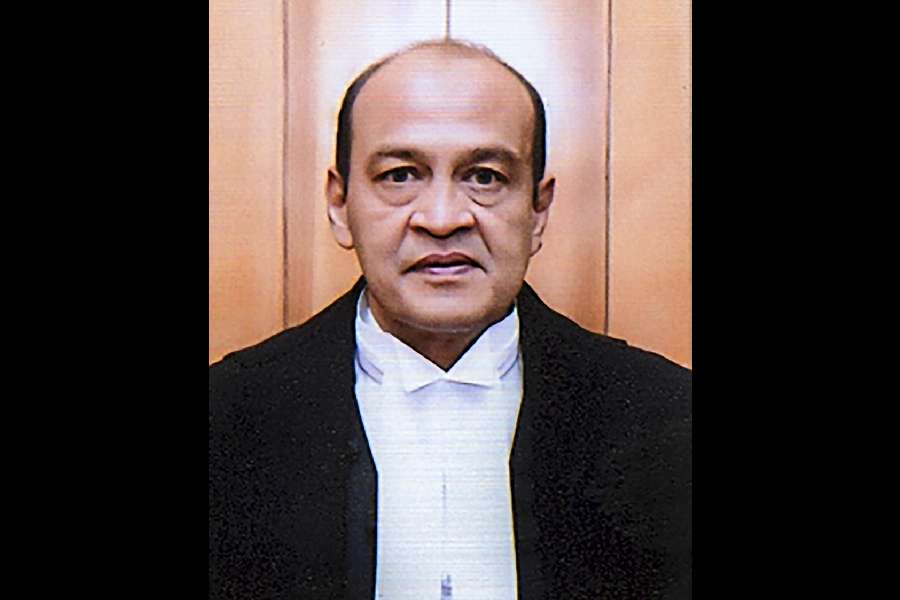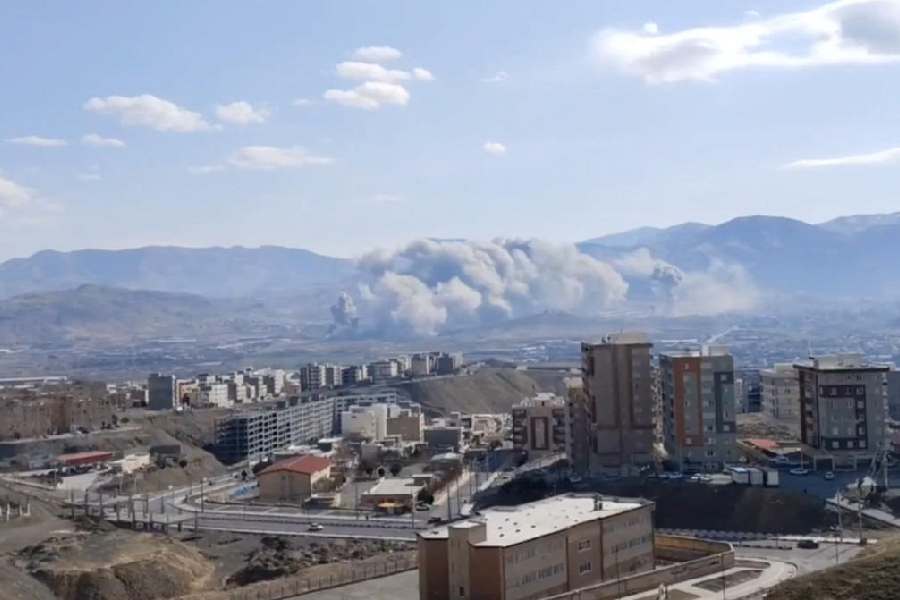The Supreme Court collegium on Monday repatriated Justice Yashwant Varma, the Delhi High Court judge in the eye of a cash controversy, to Allahabad High Court at a time he has been divested of his judicial duties till the completion of an in-house apex court inquiry.
The terse transfer announcement did not clarify whether the bar on Justice Varma from discharging his judicial duties would continue in his new posting.
Many in Delhi’s legal circles felt that a clarification should have been issued. They underlined that the order relieving Justice Varma of his judicial duties had been issued by the Delhi High Court chief justice (at the Supreme Court’s initiative), and therefore applied solely to that court.
The refrain was: If, according to the apex court, morality demands that a judge not be allowed to discharge his judicial duties in one court, should it not have been made clear that he cannot discharge those duties in another?
The Allahabad High Court Bar Association, which has been opposing Justice Varma’s repatriation to his parent court, announced an indefinite strike from Tuesday in protest against the transfer.
“The Supreme Court Collegium in its meetings held on 20th and 24th March 2025 has recommended repatriation of Mr Justice Yashwant Varma, Judge, High Court of Delhi, to the High Court of Judicature at Allahabad,” an official resolution uploaded on the apex court’s website said.
Sackfuls of cash were allegedly discovered at an outhouse storeroom at Justice Varma’s residence during a fire on March 14 night.
There’s currently no constitutional or statutory provision to deal with such situations, although Parliament has a provision to impeach Supreme Court and high court judges.
The Supreme Court had evolved the concept of an in-house probe in 1991 (Justice K. Veeraswami vs Union of India), empowering the Chief Justice of India (CJI) to form such a probe committee.
There’s no clarity, however, whether a judge temporarily divested of judicial work can be transferred and allowed to function straightaway in another court.
The Sikkim Bar Association had protested in 2010 when Justice P.D. Dinakaran, then chief justice of Karnataka High Court who faced corruption charges, was transferred to Sikkim High Court pending impeachment proceedings against him. He functioned for nearly a year as Sikkim chief justice before resigning.
Unlike Justice Varma, Justice Dinakaran had not been divested of his judicial duties in Karnataka. Still, the propriety of the transfer had come under scrutiny at the time.
While Justice Dinakaran’s transfer might have been seen as a “punishment posting” — Sikkim having the country’s smallest high court with a sanctioned strength of just three judges — this logic does not apply to Justice Varma’s repatriation.
Allahabad High Court, from which Justice Varma had been transferred to Delhi in October 2021, is the country’s largest high court with a sanctioned strength of 160 judges.
RS to wait
Cutting across party lines on Monday, Rajya Sabha members decided to wait for the outcome of the apex court’s in-house inquiry on the Justice Varma controversy before making their own move on the matter.
Several MPs had planned to seek an adjournment of the House to discuss the controversy but Chairman Jagdeep Dhankhar resolved the issue by holding discussions with leader of the House J.P. Nadda and leader of the Opposition Mallikarjun Kharge.
Dhankhar lauded CJI Sanjiv Khanna for putting up on the Supreme Court website the report of the Delhi High Court chief justice’s preliminary inquiry report against Justice Varma, and his response to the allegations, saying this was an exemplary bid at transparency.











